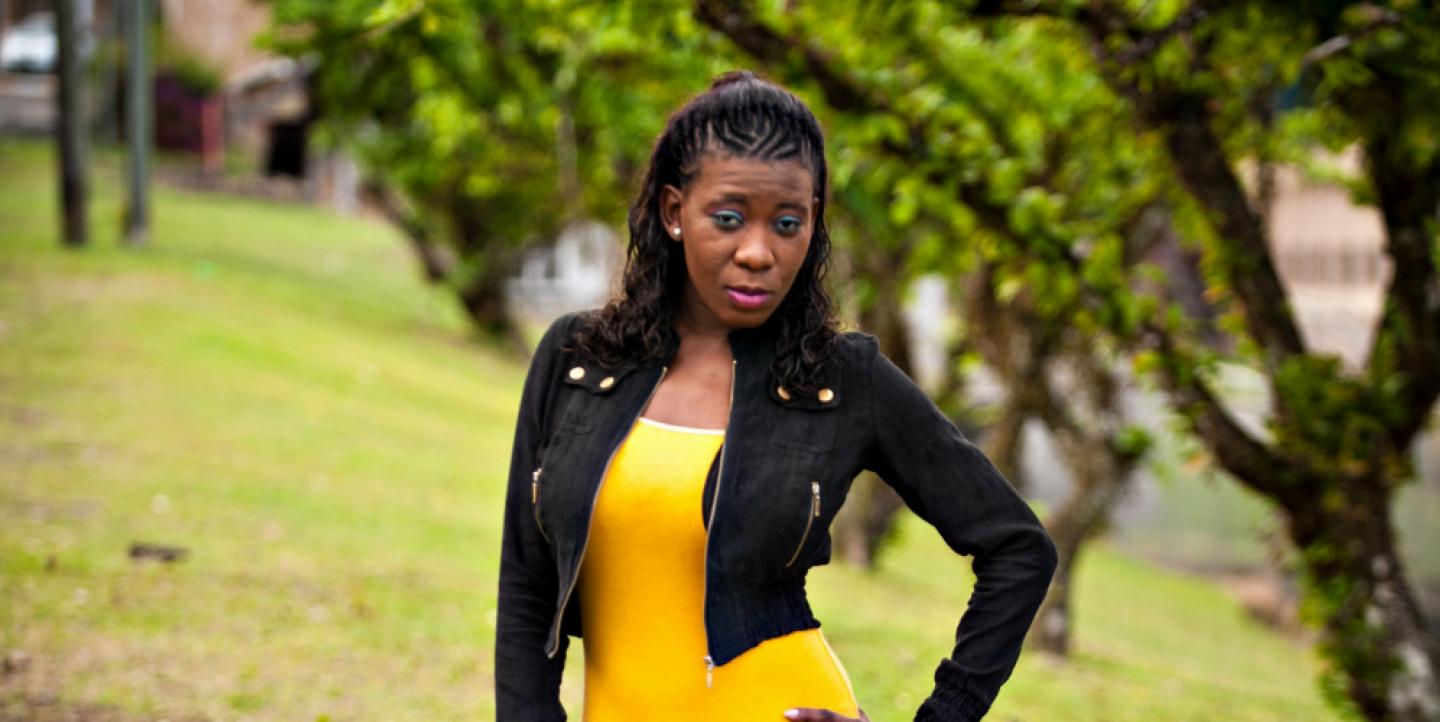Each month, IJNet features an international journalist who exemplifies the profession and has used the site to further his or her career. If you would like to be featured, email a short bio and a paragraph about how you have used IJNet here.
Journalist of the month Sarah Peter recalls a desire to pursue a career in journalism from an early age.
“I initially pursued journalism because of my love for communication — but as the relationship developed, so did a more significant objective,” she said. “I wanted to pursue a career in journalism because of the calling to make a deep-seated difference. I wanted to do my part in bringing positive change to the world by exposing corruption, demanding accountability and empowering through stories of hope, impact and perseverance.”
Based on the Caribbean island of St. Lucia, Peter has pursued trainings and fellowships across the globe, including a United Nations journalism fellowship in 2012. In 2013, she received an Inter American Press Association (IAPA) scholarship, which allowed her to study international relations at Columbia University. Most recently, Peter traveled to Paris as a Climate Change Media Partnership (CCMP) fellow, reporting on the COP21 climate talks in December.
We spoke with Peter about the many lessons she’s learned throughout her career and how she works to translate global stories to her local audience at home:
IJNet: What has your work as deputy news editor at DBS TV on St. Lucia taught you?
Peter: Working at DBS has helped me discover my international reporting skills — ironically in a local environment — by providing a platform to show how stories happening miles away relate to a local audience via a short news segment called the "Global Forum.” The initiative I created is the first of its kind in my country; a platform specifically dedicated to showing the relationship between global and local stories.
Tell us about a challenging story or project you've completed during your career. Why was it challenging? How did you overcome the challenge?
One of my most challenging projects was the production of my television documentary series, “OFF LIMITS.” I always wanted to do a TV show, but lacked the sponsorship, equipment or resource personnel to do it. Nor could I find support from any television stations. I decided to take up the initiative entirely on my own. It was extremely difficult to get sponsorship for the project — in fact it seemed impossible. After having my project rejected, over and over again, I was devastated. However, I turned my no into a yes and used it as a stepping stone and learning experience. I readjusted my approach and ultimately was able to overcome. I was also able to convince a friend of mine to work with me as the cameraman and editor and ultimately convinced a TV station to air the show. So all my hard work paid off.
How has IJNet helped your career?
Some of the life-changing opportunities that I have attained started with information on IJNet. Opportunities like the IAPA scholarship, as well as a workshop opportunity with Reuters in Miami, started with me visiting the website and clicking on a link that led to great things. The UN fellowship was also featured on this site. The website truly provided a door to incredible, fulfilling experiences that has helped to positively shape a stronger, more impactful journalist. I believe the website is a prerequisite for journalist who are passionate about developing their craft. It has a wealth of information to educate, edify and enhance the work of journalists.
What lessons did you learn as a UN journalism fellow?
The UN fellowship provided an epiphany for me. It fueled a burning desire for international reporting by creating an in-depth understanding of the UN, international issues and broadening my perspective of the world. It also helped me truly discover my strengths, skills and abilities not only as a journalist, but as a person, helping me understand that anything is possible. Moreover, it provided a platform for me to be an ambassador for my country and the entire Caribbean region.
You also covered the recent climate talks in Paris as a CCMP fellow. What was that experience like? How do you think this fellowship will help you translate global stories for the more local audience of St. Lucia?
That was a really wonderful experience! It gave me a chance to meet journalists from all over the world who I got to learn so much from. It widened my perspective and solidified my passion for climate change issues.
In terms of the fellowship helping me to translate global issues to a local audience, it showed me that essentially the issues are the same. The CCMP fellowship helped solidify that. So with that knowledge, I was able to more confidently tackle the issues that I have basically been covering for years. While I have always been interested in covering climate change issues, the experience created a deeper passion for it and broadened my perspective on the subject.
Main image courtesy of Sarah Peter.

